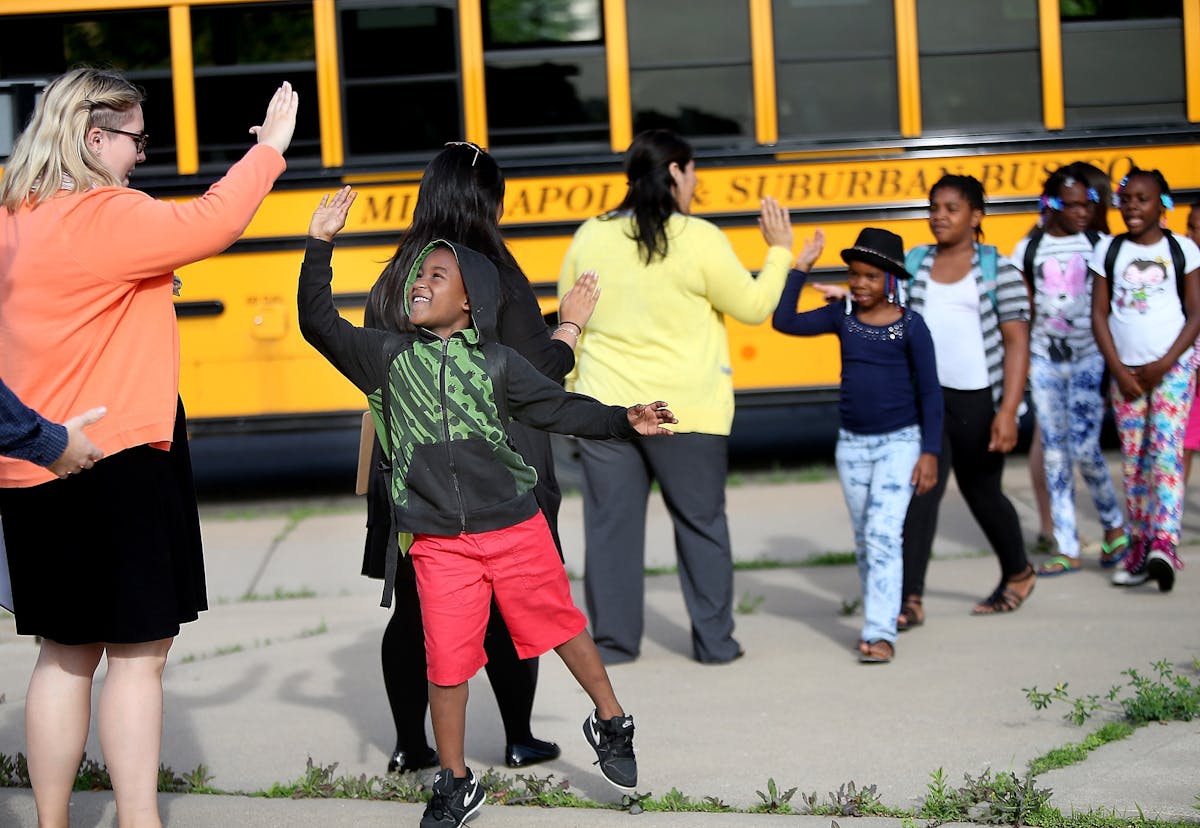A multimillion-dollar federal investment aimed at improving the lives of students in an area of north Minneapolis is showing more signs of academic traction.
A year-end report finds that students belonging to families enrolled in the Northside Achievement Zone (NAZ) did better on state tests the longer they stayed in the program.
Performance on state tests on math and reading in grades three through five was about 50 percent higher for students who spent 18 months in the program compared with students enrolled for less than six months.
Still, achievement lags. Only 22 percent of students enrolled in NAZ for 18 months actually tested proficient in reading and 37 percent were proficient in math.
NAZ represents a $28 million effort to raise academic performance in a 234-block swath of the North Side, where many students live in low-income, highly mobile families. The still-expanding program expects to reach its full enrollment of 1,000 families and 2,500 children by mid-2015.
Besides offering in-school support to students, the program offers adults training in how to help their kids in school, as well as help with larger issues such as housing and job skills. Because the federal money that established achievement zone runs only through 2016, NAZ also needs to show sufficient results to attract future funders.
Better, but not enough
A year ago, the most significant difference between NAZ students and those not enrolled in the program was seen in students entering kindergarten. Students whose families were enrolled in NAZ were more likely to enter kindergarten with the literacy and number skills needed to achieve proficiency on state tests that start in third grade.
The latest data show that third-graders are also improving. NAZ-enrolled third-graders improved their reading proficiency four times faster than the bulk of students who live in the zone. Still, the 22 percent achieving reading proficiency is far below NAZ's long-term goal of 75 percent.
Michelle Martin, NAZ's chief operating officer, said the gains for younger students represent the organization's strategy of providing family and student services from the preschool level on up. NAZ-enrolled students get extra summer and after-school programs, plus help from in-school coach-advocates. The results and analysis performed by Wilder Research don't prove that NAZ caused the improved performance, but they do associate the program with improving results.
That improvement hasn't yet registered in middle-school grades, where NAZ hasn't met its targets for student proficiency. NAZ officials said that's because they're still putting in place their plans for those students, something they plan to emphasize next year.
'Extremely encouraging'
Still, one observer who sits on the NAZ board found reason to cheer. That's former Mayor R.T. Rybak, who is executive director of Generation Next, which is a metro-wide effort to reduce the racial achievement gap.
"It was extremely encouraging to see positive early signs," he said. "They should send a signal to all of us to broaden the efforts and see if we can sustain them."
NAZ offers family improvement strategies, but also works closely with nine North Side schools it dubs "anchors." They are attended by some NAZ-enrolled students, but most of their students come from other families.
The Wilder research found that black male students in state-tested grades perform better in anchor schools than their peers throughout Minneapolis district schools, although that gap is diminishing. That's important because NAZ's goal is to create an achievement culture that affects even families not enrolled in NAZ.
Steve Brandt • 612-673-4438 Twitter: @brandtstrib

Woodbury Target standoff suspect charged with multiple felonies
Two killed, at least three injured in alcohol-involved head-on Cass County crash

